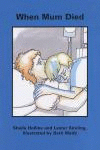
Module 5 - Mood Disorders
The Management of Recurrent (Unipolar) Depression
It is important to first address other causes of mood symptoms, such as physical illness or other mental illnesses and to ensure alcohol and drug use is not complicating the picture. It is also important to assess the person’s risk of self harm, suicide, self neglect or aggression and to provide the person with the supports they may require to manage these risks. Clinical practice is often based upon the results of research undertaken in the general population as there is very little evidence regarding the management of mood disorder in people with intellectual disability. Therefore, good general prescribing and other treatment strategies underpin the successful management of mood disorders in the intellectually disabled population.Psychological and other therapies
Psychological therapies have been shown to be as effective for people with intellectual disability as in the general population. Patients may prefer to be treated without medication or may have had intolerable side effects in the past. In such cases psychological therapies such as cognitive behavioural therapy may be tried before medication. Treatment with psychological therapies alone would not be recommended in people with severe depression who are at risk, for example where they are not eating and drinking or have developed psychotic symptoms. In people with intellectual disability the option of psychological treatment may be limited in areas where there are no specialists experienced in providing psychological therapies in this population. Psychological therapies can occur on an individual basis or in a group setting. It is important to establish trust and rapport as psychological therapies for anxiety disorders are themselves distressing and frightening. Increased distress can cause a person to lose motivation and disengage from treatment. Anxiety symptoms have often been present for long periods of time and short term therapy is unlikely to be effective in their treatment. There is some evidence that psychological therapies are effective in people with ID and anxiety disorders, although some adaptations may be required. For example, using pictures (rather than words), social stories and behavioural techniques (rather than cognitive). It may be useful to use extra resources to assist in discussing topics that make people anxious, and the Books Beyond Words series is an example of some of the available options. Other specific therapies such as phototherapy have not been well studied in this population. The topic of psychological therapies is covered in more detail in Module 11.Antidepressants
Antidepressant medications are commonly prescribed for the treatment of depression and the choice of antidepressant will depend on a range of factors. Whilst antidepressant medication can reduce symptoms within the first week of being started it will not be fully effective until the person has received an effective dose for at least four to six weeks and sometimes longer. Some people will benefit from additional medication such as diazepam (Valium) to reduce anxiety and agitation or to improve sleep while antidepressant medication is being introduced. Distressing side effects such as reduced sleep or increased agitation can also occur at the start of treatment with antidepressants or when the dose is increased, and may require short term management with a mild sedative. Following a single episode of depression it is recommended that treatment with antidepressant medications continue for at least six months after the episode has resolved. When the episode has been severe, associated with significant risk, difficult to treat or there is a history of recurrent episodes treatment is recommended to continue for at least 2 years.Other medications
Antipsychotic medications may also be used in the treatment of depression. They are indicated when the depression is severe and associated with psychotic symptoms. They can also provide some symptomatic relief due to their sedative effects. Side effects associated with antipsychotic medications mean that they should not be used in the longer term. Mood stabilising medication may also be used in people with recurrent episodes of depression, particularly if the depression is severe, and antidepressant medication alone is not effective. Mood stabilising medication will be most helpful as a maintenance treatment to prevent recurrent episodes, although there is some evidence that Lithium will be effective in achieving normal mood states during acute episodes of illness.Electroconvulsive therapy
Electroconvulsive therapy is an effective treatment for depression and its use would be considered when the episode is severe, where the person’s life is at risk, where there has been no response to other treatments or when medication cannot be used because of physical problems. This treatment is covered in more detail in Module 10.














